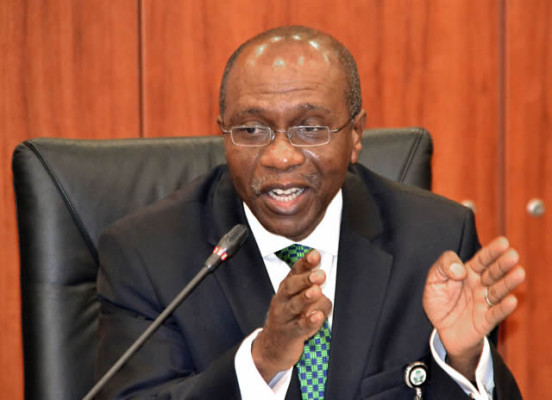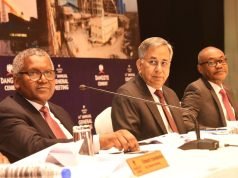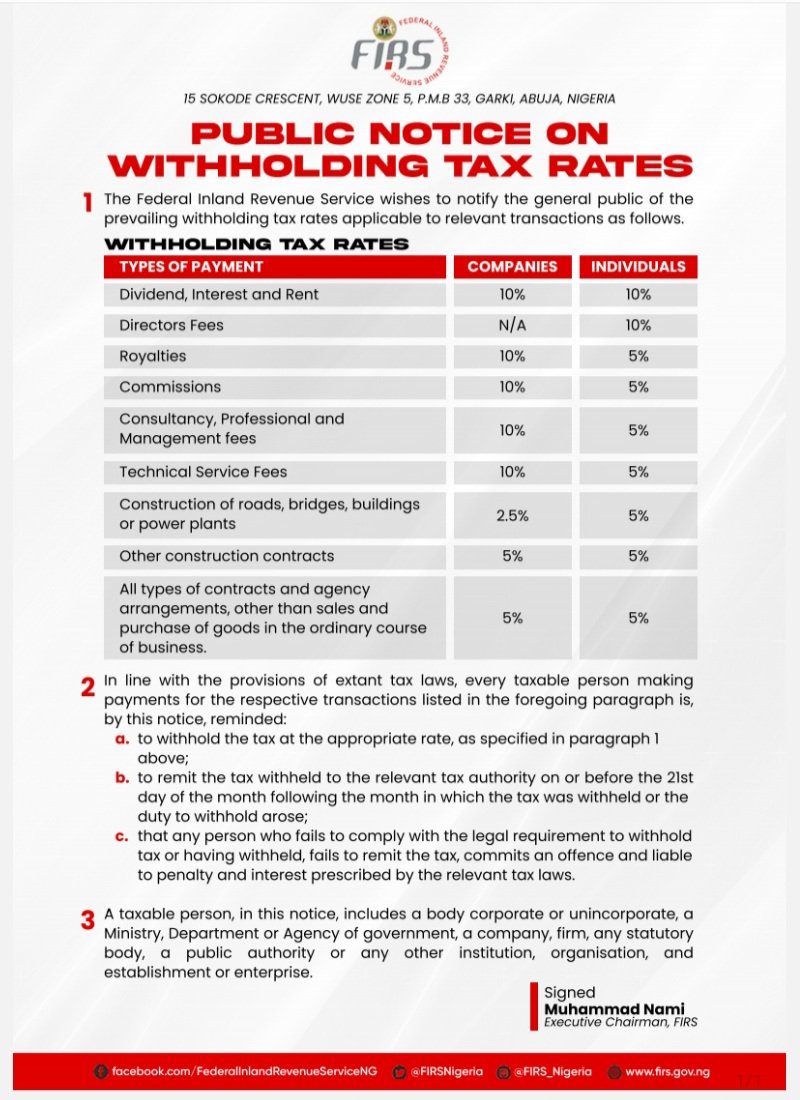 The Governor of the Central Bank of Nigeria (CBN), Godwin Emefiele has said that some of the pains that were associated with some of the CBN’s policies have now become major gains in the nation’s economy.
The Governor of the Central Bank of Nigeria (CBN), Godwin Emefiele has said that some of the pains that were associated with some of the CBN’s policies have now become major gains in the nation’s economy.
“While we still have much work to do, I am delighted that some of the pains that were associated with some of the CBN’s policies have become major gains in our economy. We have seen many manufacturers bounce back from near comatose to running shifts. We have seen many farmers smiling to the bank and going back to their farmlands in due seasons. We have seen some young Nigerians entering the rice-farming sphere rather than wait for “white-collar” jobs. And we have seen palm-oil corporations declare unprecedented profits because of the CBN’s policies.
“On these and other bases, I believe we can build the Nigeria of our dreams. I call on all of us, this evening, to set aside our complaints and differences and distractions, and let us work together to create this Nigeria, where balanced growth and shared prosperity is guaranteed for all.”
Emefiele, in his key note remarks at the 2017 Annual Bankers’ Dinner in Lagos, on Friday night. reminded the gathering that though there is nothing wrong in the current developments in macroeconomy, but that they and the policymakers should neither become complacent nor over-confident, stressing that they should strive to improve and sustain the pace of recovery.
The CBN Boss said that the nation’s import bill may have fallen but that the manufacturing and agriculture sectors still have a long way to go, adding: “if we must attain self-sufficiency in those sectors we must not be quick to discard the restrictive measures which aided our recovery simply because the metrics have improved. At the CBN we will continue to fine-tune our policies and strategies based on our understanding of evolving developments and supported by in-house technical analysis and simulations. We will remain proactive in ensuring that the welfare of Nigerians is optimised at any point in time.”
The CBN boss said that in his personal understanding of the current developments and his assessments of the traverse of future outcomes, he expected that barring any unforeseen shocks inflationary pressure will continue to ease and that this could return to very low double digit
or high single digit levels during the next year.
“Though the base effect had diminished, I expect that as the socio-economic factors that are driving food inflation are resolved the inertia therein would dissipate and the pace of headline disinflation will grow;
▪FX Reserves will continue to grow. Over the last 12 months Nigeria’s FX reserves grew by over US$10 billion from just over US$23 billion in October 2016 to over US$33 billion in October 2017. It is my belief that if we remain resolute with our efforts, policies and actions we can attain an FX reserve position of about US$40 billion by end 2018;
▪Economic Recovery will consolidate. As the sentiments improve in the macroeconomy and
supported by proactive monetary, trade, industrial and fiscal policies, I expect a continued uptick in GDP growth with a positive spillover to improved unemployment rate. As policies to strengthen the agricultural and industrial sectors become more emergent, growth in these sectors will rise, further bolstering overall economy;
▪Exchange Rate stability will continue. As we entrench and sustain the transparency in the FX
market, as FX reserves accretion continues, and market confidence and improved sentiments
remain, I expect that the exchange rate will not only be stable but would begin to appreciate
against major cur rencies. The adverse competitiveness outcome which such appreciation
may entail would be adequately mitigated by proactive policies to ensure that our balance of
payments position is not undermined.
▪Monetary policy stance could change when the underlying fundamentals become supportive. If the pace of disinflation becomes adequate and we see inflation at predicted levels, I am very optimistic that MPC may begin to see strong justification for an easing of monetary policy, which may further accelerate the recovery process.
▪Strong policy coordination: Finally, I expect a re-doubling of strong policy coordination,
collaboration and cooperation which flourished during the very difficult times. To sustain our
recovery the need is greater now than ever for a robust policy coordination between the key
aspects of economic policymaking space. In Nigeria, this would include fiscal, monetary,
exchange, and trade policies, which must be targeted at protecting farmers to boost agricultural
outputs, support local companies and enhance manufacturing and industrial capacities, with a
view to diversifying the economy away from oil and fossil fuels.” [myad]








